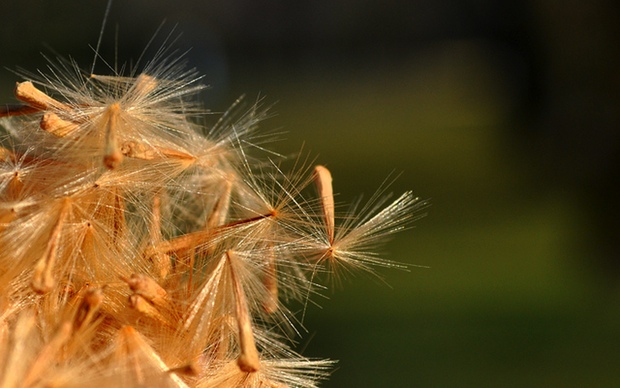The first day of spring last week brought warm temperatures and the National Cherry Blossom Festival–as well as the yellow-green dusting of pollen on our cars to signal the attack of allergy season. This year, Washington ranked 66th in the Asthma and Allergy Foundation of America’s 100 Most Challenging Places to Live With Spring Allergies–a sharp drop from last year’s 25th rank, which puts us in average pollen level territory. Still, that means nothing to those of us who get congested and sneezy for days without warning.
To help us better understand our allergy woes, we asked Dr. Larry Borish, professor of medicine and clinical researcher at the Asthma and Allergic Diseases Center of the University of Virginia, for his advice on dealing with the early allergy season. Pass his tips around with the Kleenex.
When a person has seasonal allergies, is he or she allergic to pollen in general?
You inherit tendencies to get allergic reactions, but what you’re allergic to can be very individual. It may be pollen, trees, or grasses, and it could be outdoor or indoor, as with people who are allergic to pet dander.
How can an allergist find out exactly what triggers your individual symptoms?
If your allergies are seasonal, a lot can be learned by the timing. Tree allergies are from late February through April, grass is May through June, weed pollen is in the fall. At first, what particular tree you’re allergic to won’t make a difference–you’re just tree-allergic. The treatment is the same. Only when we get to allergy shots do we have to make sure to find the tree you’re allergic to using extracts. In the case of pollen, the type is not really important.
The first line of treatment is antihistamines, because pollen is not really avoidable.The second is corticosteroid nasal sprays. Allergy shots are only for patients who find the first and second lines of defense have failed, or if there’s reason to suggest that it’s more cost-effective to do the shots. It’s cheaper than having to use nose spray for the rest of your life.
Why are allergy flare-ups so unpredictable?
A lot of that is exposure. Especially with tree pollen, you can go from nothing to incredible amounts overnight–just look at your windshield. It has to do with the biology of trees and weather patterns–rain usually helps take pollen out of the air, and electrical storms seems to raise pollen counts.
On high-pollen days, what are some tips to reduce the chance of ending up feeling wretched?
Pre-treatment works best. It’s better if you use an antihistamine before going outside. You could also just limit your exposure and stay indoors, but I hate to say that, because people should get out more and exercise.
What are some home remedies to ease symptoms once they’ve already started?
One thing that’s very underappreciated is keeping your nose clean. Neti Pots are starting to become popular, and they do a great job of washing pollen out of your system to prevent an allergic response. Everything else is unproven, and hasn’t really been studied enough for me to speak intelligently on it.
If a person has symptoms too severe to be relieved with over-the-counter drugs or nasal sprays, what might be the issue?
Over-the-counter medications tend to be ineffective for people with more than mild disease. At that point, you need to seek medical advice. There’s already discussion [in the medical community and federal government] of making corticosteroid nasal sprays available over the counter, which would be great. The ones on the market now are largely decongestion sprays, which we strongly urge people not to use because they can often do more harm.
Are there any differences between the leading over-the-counter allergy medications?
For antihistamines, there’s absolutely no difference. It’s all the same drug, in the same doses. There’s no substantial data to prove any one is better than another, so if one doesn’t work, chances are none of them will, and you may want to see a specialist and try nasal sprays. The only thing is I’d encourage is for people to use non-sedative antihistamines. Even if you think they won’t make you sleepy, studies have shown that [first-generation] antihistamines can cause impairment [to cognitive and performance skills].



















